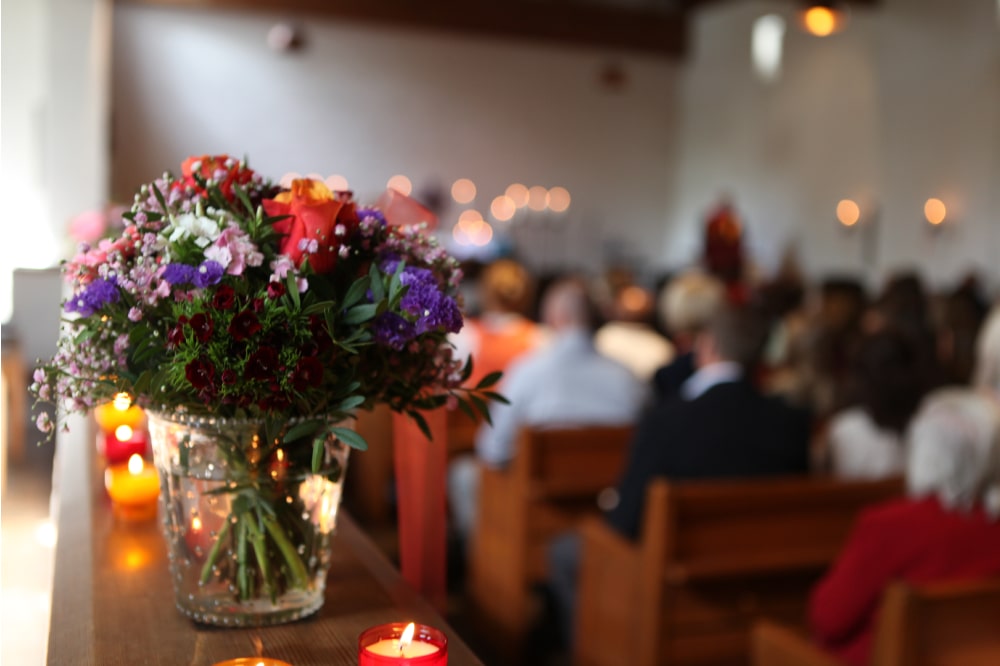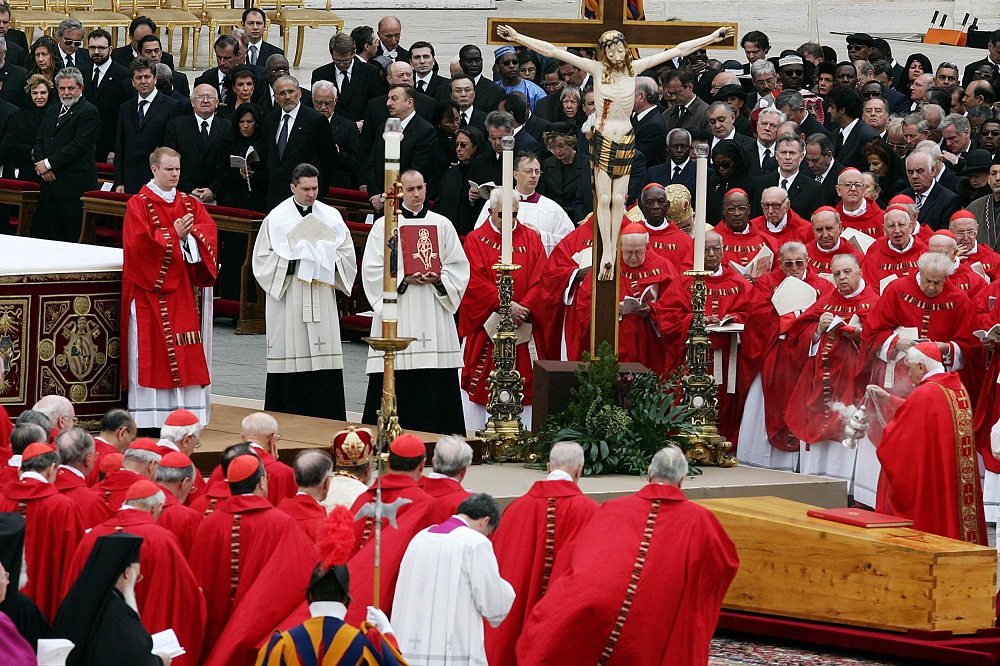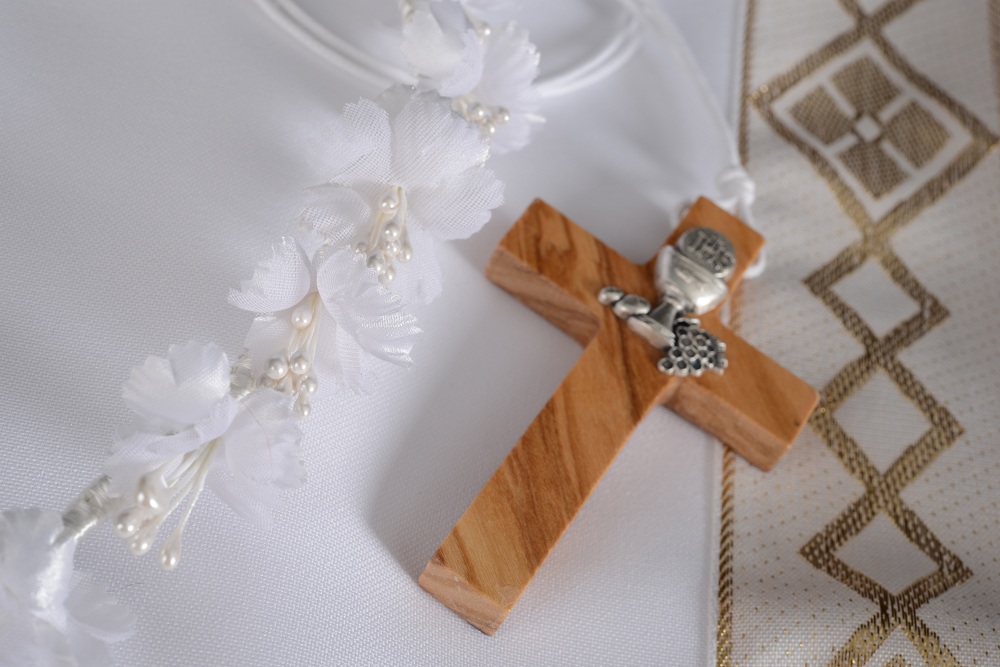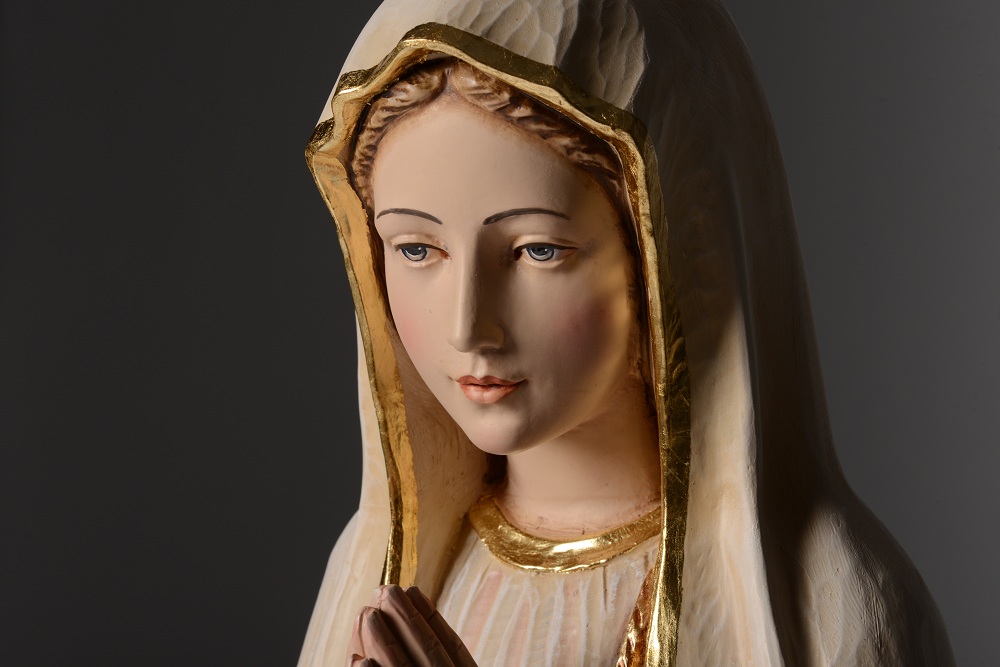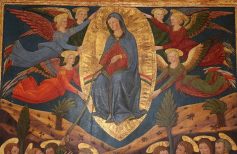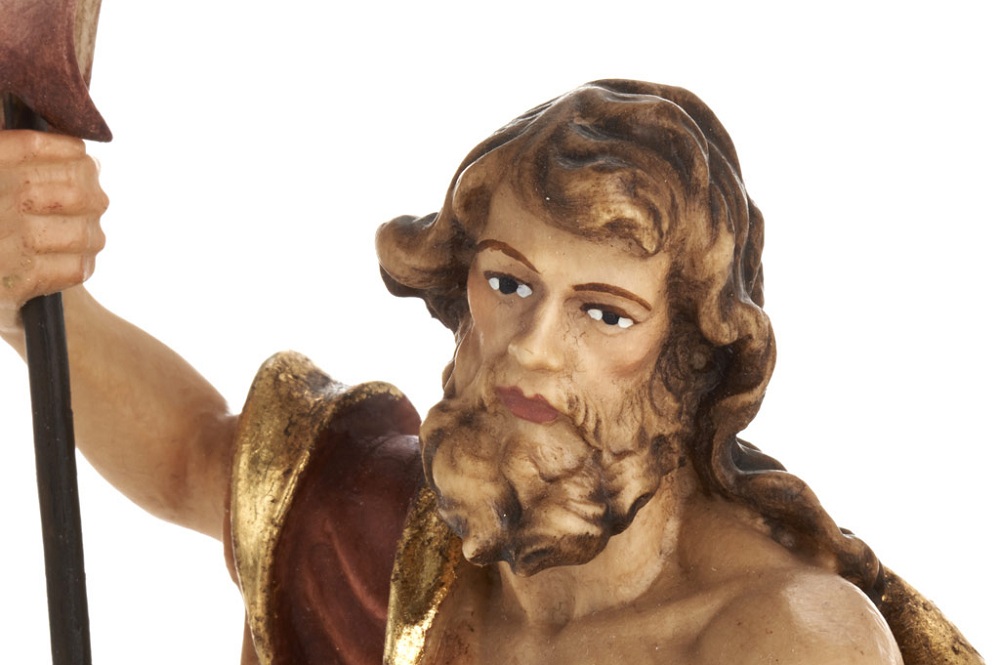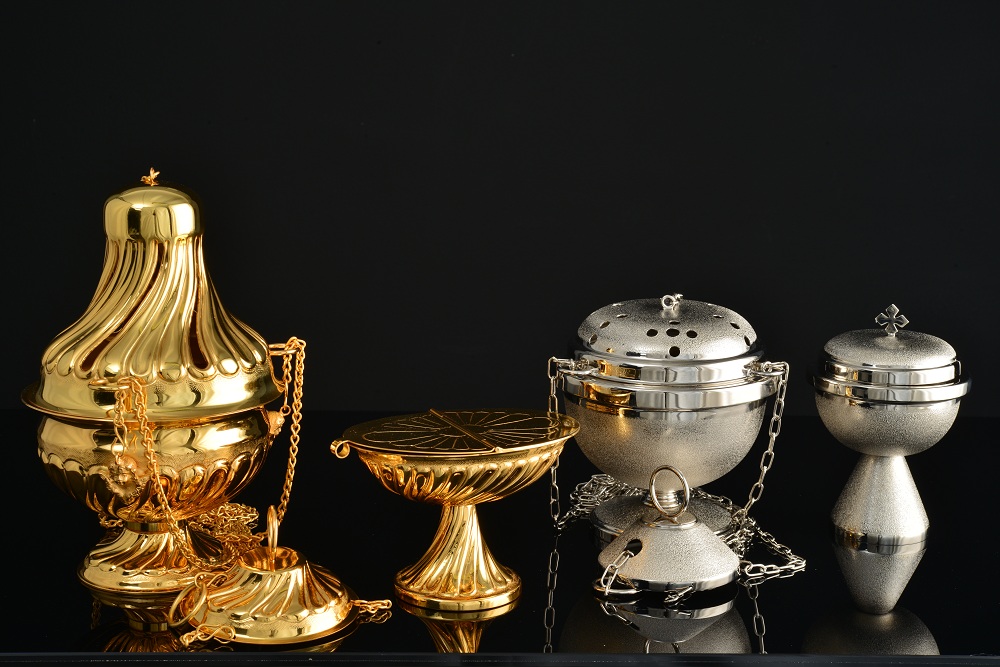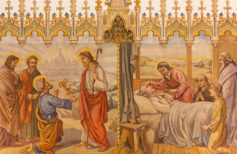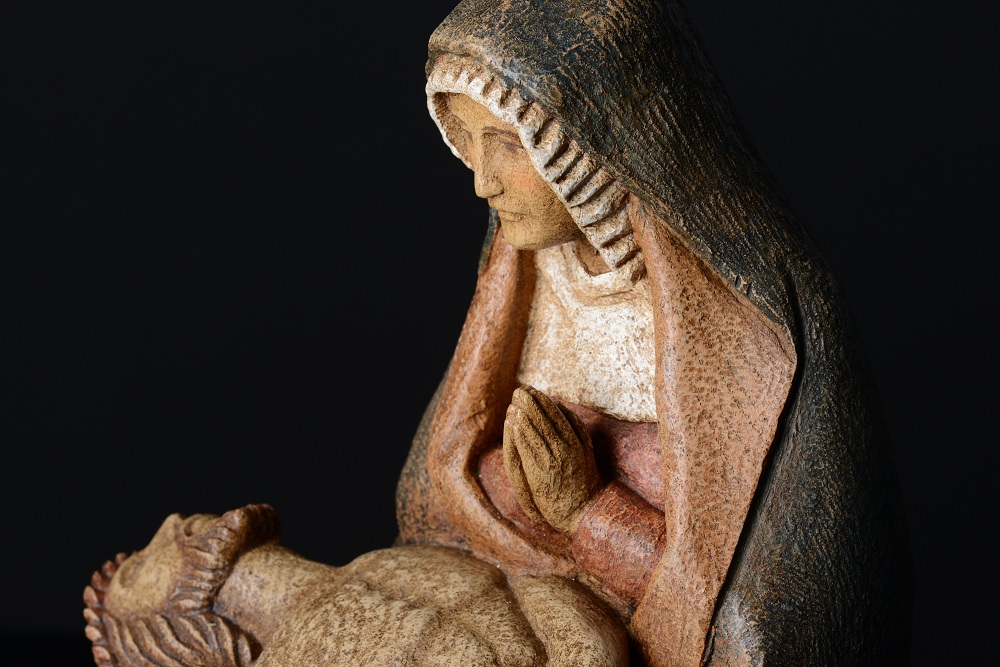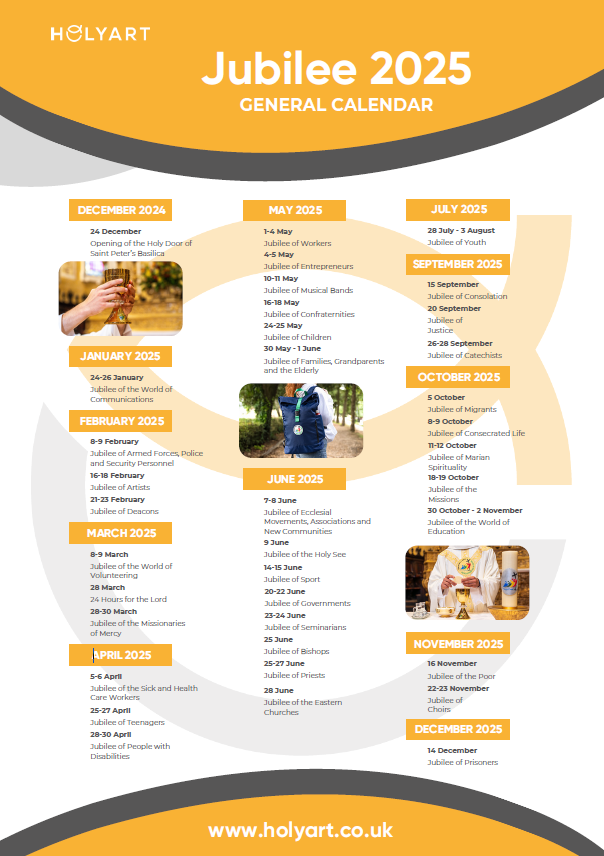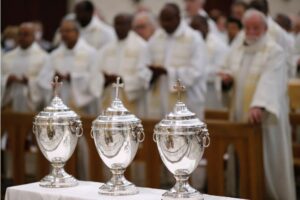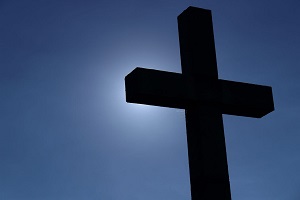Death for a Catholic represents an encounter with Jesus in eternal life. Here is how a Catholic funeral is conducted
Although death remains a dramatic event for anyone, there is no doubt that in the Christian religion it is also conceived as a moment of deep and solemn connection with one’s spiritual dimension. Indeed, in death the Christian detaches himself from earthly life to go forth to the eternal one, in Heaven, with Jesus, the Virgin Mary and all the saints. This journey begins with the ritual of the Catholic funeral, with the words of the priest commending the soul of the deceased to God, and even before that, with absolution of all sins and Extreme Unction. Viaticum, the last Eucharist, is also a kind of spiritual nourishment that prepares the Christian to face the transit to the other life, a nourishment for the journey that is already a promise of eternal life.

Anointing of the Sick: what it is and how it takes place
The anointing of the sick is a practice that comes from Jesus himself. Here is how it has evolved over time
So death for Christians is only a passage, a temporary phase, often accompanied by illness, decay, suffering, but nevertheless destined to end to give way to a condition of otherworldly joy and bliss.
Every Catholic funeral, every exequial Mass, renews the Easter mystery of Christ, His victory over sin and death. The Christian funeral liturgy is a way of accompanying the deceased on their final journey, helping them through prayers that purify their souls to enable them to be received into heaven. Prayer for the dead is a heartfelt request for grace from relatives and friends, to help the dearly departed obtain forgiveness and absolution, possibly to shorten the duration of the soul’s atonement in purgatory, while the body awaits the second coming of Jesus and the Resurrection of the flesh.
The Catholic funeral is usually preceded by a wake, during which relatives and friends of the deceased gather to pay their last respects before they are buried. The body is displayed in the burial chamber, which may be the room in which he or she died or a designated room at the cemetery or hospital.

The recitation of the Rosary in the afternoon or evening following death is also a popular funeral tradition in Italy. People gather in church and pray together, led by a priest as well as a lay person. The Rosary in suffrage of a deceased person involves the recitation of the glorious mysteries related to the resurrection of Jesus, his ascension to Heaven, the assumption of the Virgin Mary into Heaven, and so on.
After the Rosary and the wake, the actual funeral ceremony takes place, presided over by a priest. The coffin is led into the church, sprinkled with holy water and incense. In most cases in our country there is an additional step that closes the Catholic funeral. This is the pious burial service, which takes place before the burial or cremation at the cemetery or crematorium, where the participants in the ritual have gone starting from the church on foot or by car, depending on the distance, following the hearse.

Readings for the funeral
During the Catholic funeral, in addition to the readings done by the priest, it is common for relatives and friends to also want to remember the deceased with remembrances and readings. Usually, if people do not want to read something written in their own hand, they choose passages from the Holy Scriptures, particularly from the Old Testament. One of the most frequently chosen texts is the Book of Job: “…After this skin of mine is torn off, without my flesh, I shall see God. I shall see him, myself, my eyes shall behold him, and not another” (Job 19:26). An alternative is the Gospel according to John: “…Jesus said unto her, I am the resurrection and the life; he that believeth in me, though he die, yet shall he live” (Jn 11:25). Or also Psalm 22:
The Lord is my shepherd:
I shall not want for anything.
He makes me lie down in green pastures.
He leads me to still waters.
He restores my soul,
He leads me in paths of righteousness
for his name’s sake.
Even though I walk through the valley of shadows,
I will fear no evil, for you are with me.
your rod and your staff,
the comfort me.
You prepare a table before me
in the presence of my enemies.
you anoint my head with oil;
my cup overflows.
Surely goodness and mercy shall follow
all days of my life,
and I shall dwell in the house of Lord
forever. (Psalm 22,1-6)

